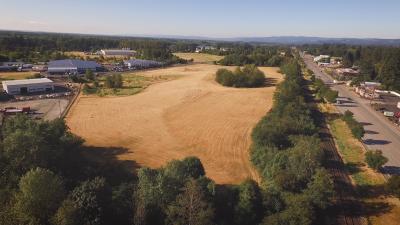PORT NEWS AND NOTES: A Closer Look at Columbia County's Industrial Land
December 20, 2024
Sean Clark, Executive Director
The Port of Columbia County owns approximately 2,400 acres of land across the port district but has only about 135 acres available for industrial development. And of those, just 24 acres are considered “shovel-ready,” meaning building could start within six months. The rest of the Port’s industrial property requires substantial investments in infrastructure before it can be developed.
In 2022, the Port of Columbia County, Columbia Economic Team, Columbia River PUD, and the cities of Scappoose and St. Helens commissioned a study to assess Columbia County’s industrial land supply. It identified industrial land parcels of five or more acres, factoring in constraints such as wetlands, floodplains, and slopes. The identified sites were then evaluated for development readiness based on any site use restrictions, annexation requirements, available utility infrastructure, transportation access, and owner’s willingness to sell.
The findings revealed a significant shortage of “shovel-ready” industrial land, particularly in the northern part of the county. Only seven sites across the entire county met the criteria to be “shovel-ready” within six months, and all of these were located in either Scappoose or St. Helens.
Scappoose has made considerable progress in their supply of developable industrial land in the last couple of years. Thanks to substantial private investment in roads and utilities at the Columbia Commerce Center, Scappoose now has over 280 acres of industrial land ready for development. In St. Helens, while the recently announced purchases of the former Armstrong and former Boise Cascade sites is great economic news for the region, it also greatly reduces the area’s available industrial land supply.
The rest of Columbia County has even more challenges. The cities of Rainier and Vernonia have no shovel-ready sites, though they do have industrial sites that require a significant investment in public infrastructure before they can be developed. Meanwhile, Clatskanie currently has no available industrial property, not even land with development restraints.
Why does this matter? An adequate supply of industrial land supports the growth of local businesses, the attraction of new employers, and the creation of jobs. Most importantly, it helps support a sustainable tax base necessary for funding schools and public services. Without industrial development, our communities risk missing out on the opportunities that could drive long-term economic prosperity.
It’s important that we prioritize investments in making industrial sites ready for development. These investments in infrastructure aren't just about improving roads and utilities—they're about investing in the future of Columbia County.

